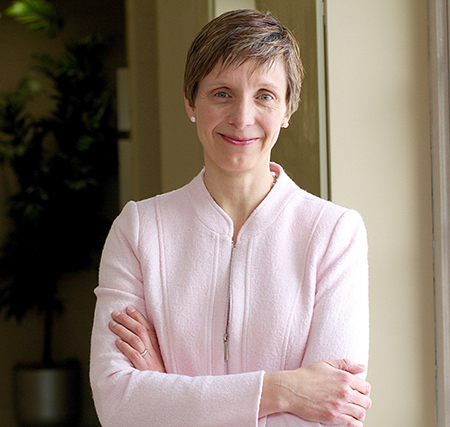Professor Oosterveld appears before International Criminal Court in case involving gender-based war crimes
July 04, 2022
 Professor Valerie Oosterveld recently appeared before the International Criminal Court (ICC) in the Hague, Netherlands to present amicus curiae (‘friend of the court’) arguments in the case of Prosecutor v. Ongwen.
Professor Valerie Oosterveld recently appeared before the International Criminal Court (ICC) in the Hague, Netherlands to present amicus curiae (‘friend of the court’) arguments in the case of Prosecutor v. Ongwen.
Ongwen was a senior commander in the Lord’s Resistance Army (LRA) rebel group and in 2021, he was found guilty of 61 charges of crimes against humanity and war crimes committed in Northern Uganda between 2002 and 2005. A large number of those charges were for sexual and gender-based violence. Ongwen was sentenced to 25 years of imprisonment and his case is now on appeal.
The LRA was widely reported to have systematically abducted young women and girls between the ages of 10 and 18 years old, who were then assigned as so-called ‘wives’ to male LRA fighters. These girls and women were expected to provide sex on demand, as well as to cook, clean, and do whatever their ‘husbands’ requested. Many became pregnant and had children in these difficult circumstances. The Trial Chamber found that there were at least 100 abducted girls and women who were forced to serve as ‘wives’ in Ongwen’s Sinia Brigade during the time period of the indictment. Ongwen was convicted of the crime against humanity of ‘other inhumane acts’ for creating, using, and enforcing a system of forced marriage. He became the first accused at the ICC to be convicted of this crime.
Professor Oosterveld appeared as an amicus at the ICC on behalf of a group of eight other feminist lawyers from Australia, Canada, the Netherlands, Nigeria, and the United States who submitted a brief and were selected to present oral submissions. “When I stood up in front of the judges, it felt like my career had come full circle”, said Oosterveld. “In 1998 I served on the Canadian delegation to draft the gender provisions in the Rome Statute of the ICC, the court’s founding treaty. I then joined the then-Department of Foreign Affairs, working on behalf of my country to make the ICC a reality.” She added that “it was an honour to work with a team of dedicated feminist academics and advocates to present submissions on an act - forced marriage - which deserves a deeper understanding in international criminal law.”
Oosterveld expects to be in The Hague again in the coming months, including for the launch of her new co-edited collection, Gender and International Criminal Law, which will be published by Oxford University Press in July.






